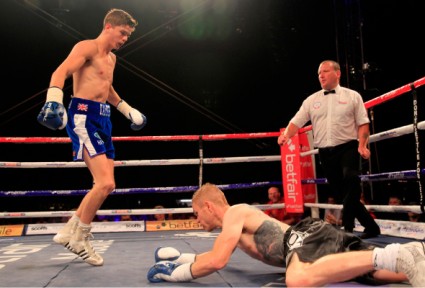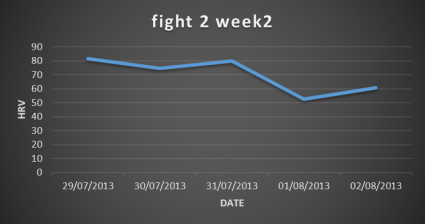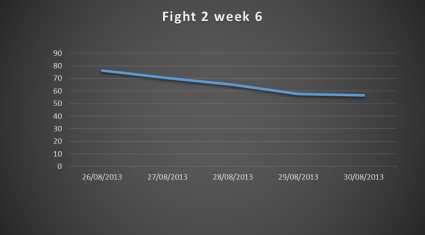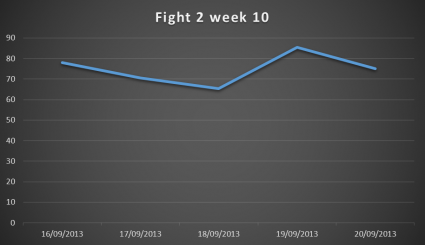 As the strength and conditioning coach of one of the highest profile athletes from 2012 the pressure was on me to get everything in place for the start of Luke Campbell’s professional career in 2013.
As the strength and conditioning coach of one of the highest profile athletes from 2012 the pressure was on me to get everything in place for the start of Luke Campbell’s professional career in 2013.
In a review of his first professional fight camp we decided that to many times throughout the 8 week camp Luke presented with overtraining or under recovering symptoms. After researching the use of heart rate variability (HRV) for monitoring recovery I was pointed in the direction of ithlete by the Hull University sports science department. So for Luke’s second fight camp we have been armed with the ithlete HRV package giving us daily feedback on how Luke is recovering and responding to different training stimuli and intensities. This allowed me to auto regulate Luke’s training each day according to the results from the morning ithlete HRV test.
If the ithlete HRV reading was low then we would adjust training load in his S&C work and advise Luke’s boxing coach to do the same to try and help Luke recover in order to train hard again the next day. With the aim being to not let Luke’s HRV score get too low on any day that several days of recovery are needed to return scores back to ‘normal’.
The ithlete HRV readings have also helped us to shape a weekly schedule that suits Luke’s ability to recover. The main alteration we have made in accordance with the daily HRV scores is to swap Wednesday morning training for a pool recovery session. Without the pool recovery session we found that Luke was struggling on Thursday and the quality of training was reduced for the rest of the week. So effectively we were only getting two days of quality training and three poor days. Adding the recovery session in on a Wednesday morning has meant that Luke’s HRV score returns back up to his ‘normal’ level on a Thursday and as a result we get quality training on Thursday and Friday – four quality training days as opposed to the previous two!
Graph 1 from the first week of using HRV daily monitoring:

This line shows the effect of high training intensity on Monday and Wednesday on Luke’s recovery, as well as how lower intensity days on Tuesday and Thursday allowed HRV to improve.
Graph 2 shows the effect of training hard on Wednesday:

Training hard on a Wednesday lead to a constant decrease in HRV scores throughout the week.
Graph 3 shows the positive effect the Wednesday recovery session had on HRV score:
 HRV scores helped us shape Luke’s training week to have a pool recovery session on a Wednesday morning allowing him to recover for hard training on Thursday and Friday.
HRV scores helped us shape Luke’s training week to have a pool recovery session on a Wednesday morning allowing him to recover for hard training on Thursday and Friday.
Summary
This short blog hopefully gives you an idea of how useful the daily ithlete HRV feedback is to an athlete when planning training. I think it is a fantastic piece of sports science that is available to all athletes on their mobile phones at a really affordable price. I would advise any athletes or coaches to look into including the ithlete HRV package into their daily monitoring program.

by Jack Latus
S&C coach at Latus Training
About Luke Campbell
For more information about Luke, winning a Gold medal at London 2012 and turning pro visit his website or follow him on Twitter @luke11campbell

Inspired by Luke’s second professional fight on Saturday we’re offering 10% off across our hardware this weekend!
To use the offer simply enter code ‘GoLuke10’ on our website before midnight on Sunday 6th October 2013.